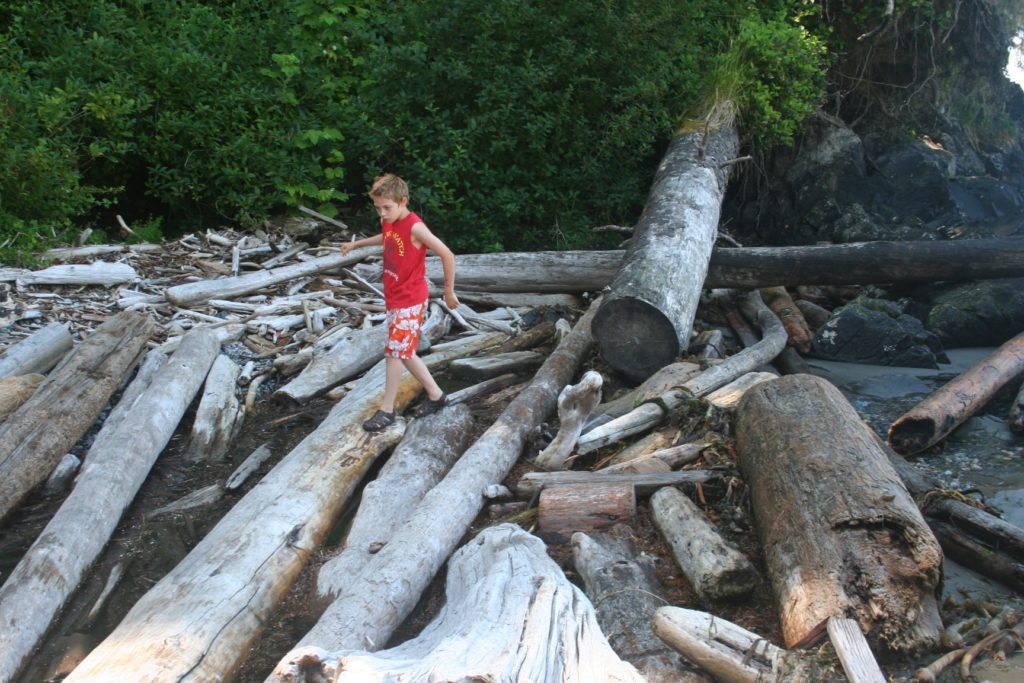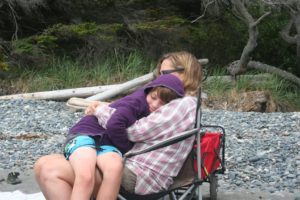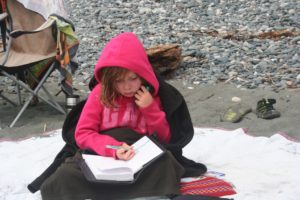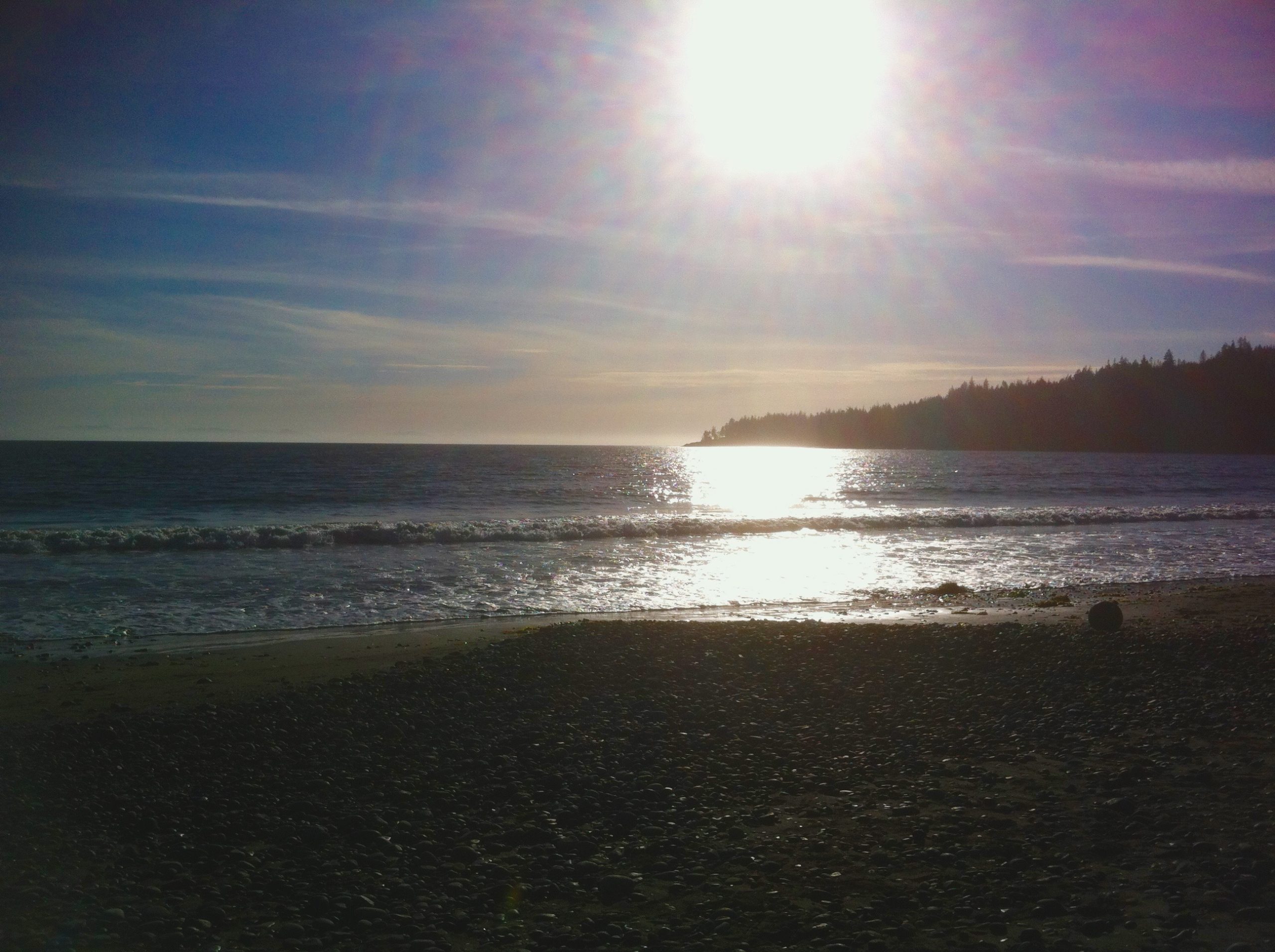We recently spent a nice weekend camping at French Beach Provincial Park, a little out-of-the-way campground on a lonely stretch of beach between Victoria and Port Renfrew, on Vancouver Island. The beach itself is a typical West Coast mix of cobblestone and sand, and the water is FREEZING! That doesn’t seem to stop my ever-adventurous children. I’m convinced that small kids are incapable of feeling the cold. Or maybe they aren’t yet human? That could explain so many other things…
One of the best things about camping at French Beach, other than the quiet, and the beach itself, is not having access to the internet. There is no cell service, no WiFi, no connectivity at all. When we arrive at the campground, we switch our phones to “Airplane Mode”, and now all we have are compact cameras!
Disconnecting from the world has appeal for many people who can often feel over-stimulated and information-overloaded. We use our hand-held devices like they are an appendage; we need to have the sensation of connectedness with the rest of the world. We will often feel the need to share the moments of our day with our friends via social media. Or we experience an overwhelming urge to watch the latest cute cat video. We talk about the need to disconnect, to re-connect with our selves, to become a human “being” again, to move away from living as a human “doing“.

But in reality, how many of us can do it? How many of us can put down our phones, turn off our electronic devices and disconnect from our WiFi hotspots? Is it really that easy to just disconnect?
Personally, I found that being disconnected at French Beach Provincial Park brought up some apprehension. Sneaky little thoughts intruded on my quietude. “Is the cat okay?” “Is our house alright?” “Is there something happening in the world I should know about?” “Did someone post a newer and cuter cat video?”
Our children don’t concern themselves with the electronic distractions, and for that I am constantly grateful. For them, the camping experience is a hundred times better than Minecraft or a Disney princess. For them, being connected means hanging with us and their new friends they inevitably meet, connected to the environment, connected to the real world around them. And they are always willing to remind me to disconnect.
We talked about the importance of being still with our children. Most kids today are so connected they have no idea how to just sit and watch the ocean. Or lie in a meadow and watch clouds. It can sometimes be a challenge for our own kids, but they typically don’t have access to electronics when we are away camping. They find other ways to be distracted, like playing in the forest, riding their bikes, body surfing in near-freezing water, or parkour on the rocks and logs at the beach. And while these activities are not exactly being still, these are good distractions. Another form of “being”, kid-style.

As I write this (with pen and paper), Beth-Rose is sitting on a blanket all bundled in fleece after body-surfing in 60 degree water. She’s drawing, hunched over, in Heather’s sketchbook. Zachary is cuddling in Heather’s arms and watching the surf crash along the shore. This is being. This is disconnected. This feels right. And my apprehension is gone.





[…] I’ve had my own struggles with device distraction. I mean, how many times a day did I need to check my emails? It’s taken me years to wean myself from it. And sometimes I’m still sucked in. But I have made progress! […]
It was definitely better on the logs floating in the water. I actually fell in into waist deep water! I do just love camping in the woods on a nice beach!⛺️